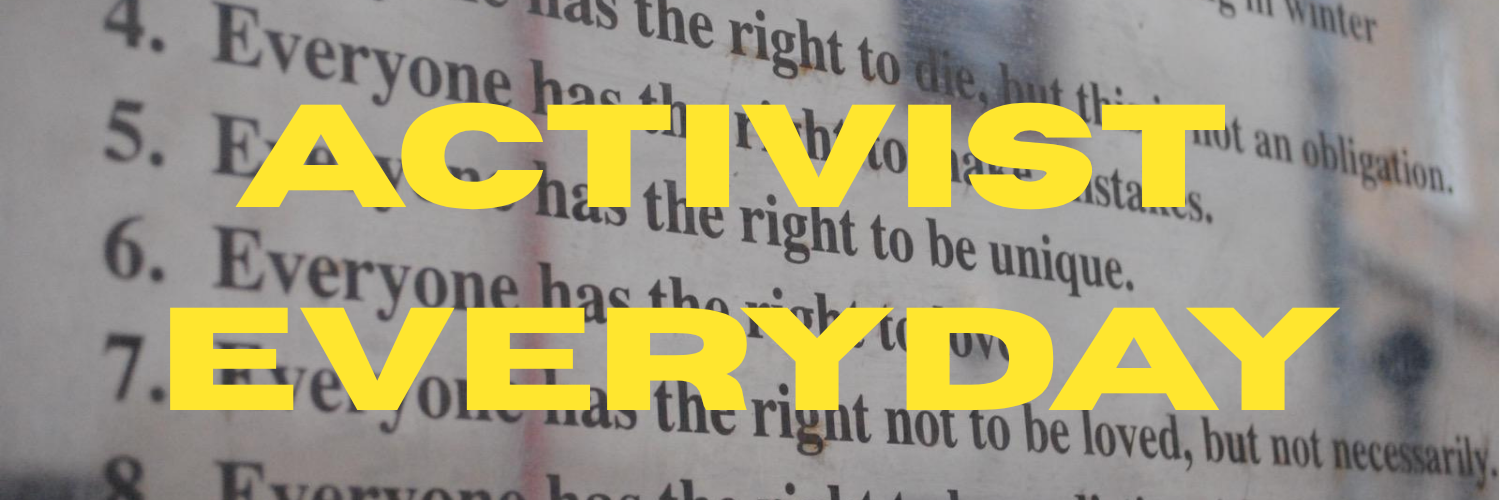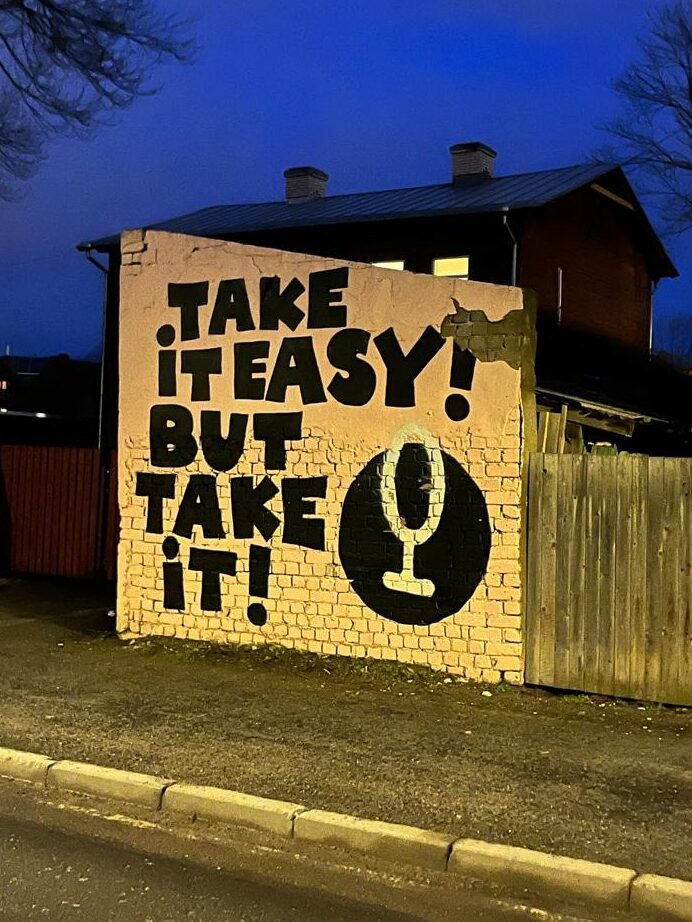
(The constitution of the Republic of Užupis)
What is the power of words?
The word “activist” is running into a bit of trouble these days. Many politicians and political commentors have sought to distort the word into something grotesque. It is a word often made synonymous with “radical,” “dangerous,” “scary,” and “wrong.” Activists, the implied messaging states, are a threat to our apparently stable, safe, tranquil, and righteous world, so it is best to not call yourself one.
The other trouble with “activist” is that it is sometimes seen by progressives and their supporters as a very big word that should be reserved exclusively for big people and things. While it is undeniable that we should reserve powerful words for courageous and heroic acts of resistance, holding the “activist” label as some impossible gold standard then raises the question of “who” and “what” gets to count as activism. Its resonance can sometimes imply that anyone not actively storming the Bastille, putting their livelihood, body, and life on the line, cannot call themselves an “activist,” and, therefore, should do nothing at all. In short, it can be a method of exclusion in places made for welcoming in and a mechanism for extinguishing among a group that desperately needs fire.
In an effort to push our world in a different direction, this library seeks to champion the small. It asks: why can’t something as natural and indulgent as reading or learning or talking or day dreaming count as activism? Why don’t we encourage these things for the sake of radical causes, if these sorts of practices are essential to creating an equal, fairer, greener, more peaceful, and prosperous world for us all? Perhaps, it is through these acts that we can – and, in fact, must – be activists, everyday.

Subscribe for Updates!
Subscribe to be the first to learn about a new recipe

